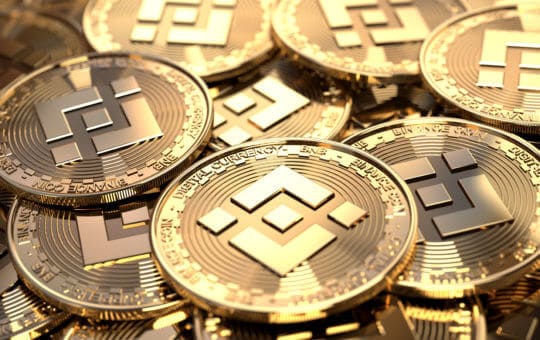Join Our Telegram channel to stay up to date on breaking news coverage
While the traditional market remains significantly hampered by the effects of the coronavirus pandemic, the crypto market has rallied and is now on the upsurge. So much, so that talk of digital currencies is back in the news.
As The Nassau Guardian reported earlier today, the Central Bank of Bahamas (CBOB) is now looking to make some fundamental changes to its Sand Dollar digital currency in a bid to prevent the virus’s effects on its economy anymore.
Contactless Payments Will Reduce Exposure Links
As the report confirmed, John Rolle, the Governor of the central bank, is looking to make changes that will help it to effectively meet the country’s payment needs and repel the effects of the coronavirus.
Part of the changes they were looking at will include helping the digital asset to effectively enable a touchless payment system that will expel the need to make physical contact with money. This way, they can reduce unnecessary skin-to-skin contact and ensure a reduction in exposure risks to the virus.
He added that in light of these changes, the project could take a while longer, as they’ve found that fast-tracking the development of the asset would be inherently risky.
The digital currency was initially expected to launch in the second half of the year, as The Tribune, a local news medium, confirmed that Rolle had presented a plan addressing the asset to the Bahamas Chamber of Commerce and Employers Confederation as far back as last month. The Bahamas already rolled out a pilot project on the island of Exuma in December 2019.
Other Countries Readying for a Digital Currency
The Bahamas isn’t alone in this crusade. As industry news source AMB Crypto confirmed today, the United States Senate Committee on Banking, Housing, and Urban Affairs is also considering the draft bill for a digital dollar that will help to stimulate the economy as the coronavirus and its threats rage on.
The news source didn’t provide much by way of additional details, although given that the country has been slow in even considering the prospect of a digital currency, it’s highly unlikely that the plan will hold water.
Regardless, of course, several other nations seem to be moving ahead with their digital currency projects. China seems to be leading the way for now, as the government began a pro-blockchain crusade that many believed will usher in the launch of its state-backed digital asset. Several government officials have also come out to confirm that such an asset is on its way, and the government is set to roll out its Digital Currency Electronic Payment (DCEP) – which will usher in the digital yuan – before the end of the year.
Sweden has also confirmed that it is testing the e-krona, a digital version of its national fiat currency. The announcement was made last month, with the government explaining that the pilot program for the asset will last for a year.
As Cointelegraph explained at the time, the goal of the e-krona will be to help optimize Sweden’s payment and banking activities and to provide a more seamless means of conducting transactions.
Join Our Telegram channel to stay up to date on breaking news coverage


